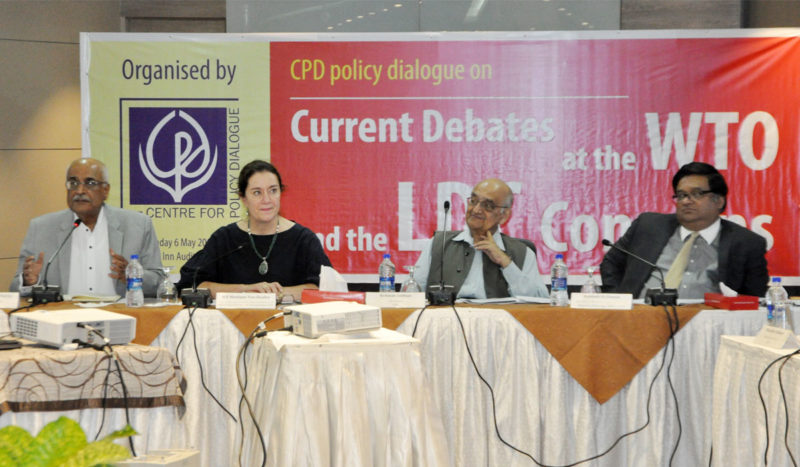
Bangladesh is underway to graduate from the Least Developed Countries (LDC) group in 2024. However, the country will continue to enjoy the benefits of an LDC country till 2027. Losing out on benefits like duty free quota free (DFQF) market access and others beyond 2027 can affect the trade growth of countries like Bangladesh. The country is also graduating at a time when the global trade scenario and the World Trade Organization (WTO) are not in the best of situations. Thus, Bangladesh needs to have a clear understanding of the challenges it will face after graduating and should proceed with a concrete plan to ensure a smooth transition and a sustainable graduation from the LDCs.
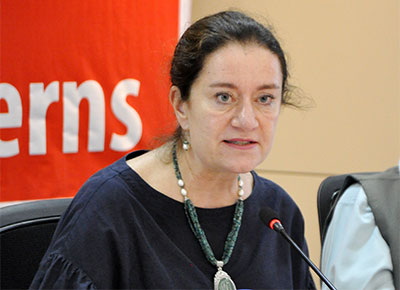 These opinions emerged from a policy dialogue on “Current Debates at the WTO and the LDC Concerns”, organised by the Centre for Policy Dialogue (CPD), on 6 May 2019, in BRAC Centre Inn Auditorium, Dhaka. H E Ms Monique Van Daalen, Ambassador and Permanent Representative of the Netherlands and Chair, LDC Sub-Committee, WTO, Geneva made the opening remarks at the dialogue and Mr Mahbub Uz Zaman, Secretary-Bilateral (Asia & Pacific), Ministry of Foreign Affairs, Government of Bangladesh, was present as the Guest of Honour. Initial reflections were made by Dr Rubana Huq, President, BGMEA, Mr Md Munir Chowdhury, Director General, WTO Cell, Ministry of Commerce, Government of Bangladesh, Mr Taufiqur Rahman, Head of LDC Unit, Development Division, WTO, Geneva and Professor Mustafizur Rahman, Distinguished Fellow, CPD. Professor Rehman Sobhan, Chairman, CPD, offered special comments at the dialogue while Dr Debapriya Bhattacharya, Distinguished Fellow, CPD, chaired the session.
These opinions emerged from a policy dialogue on “Current Debates at the WTO and the LDC Concerns”, organised by the Centre for Policy Dialogue (CPD), on 6 May 2019, in BRAC Centre Inn Auditorium, Dhaka. H E Ms Monique Van Daalen, Ambassador and Permanent Representative of the Netherlands and Chair, LDC Sub-Committee, WTO, Geneva made the opening remarks at the dialogue and Mr Mahbub Uz Zaman, Secretary-Bilateral (Asia & Pacific), Ministry of Foreign Affairs, Government of Bangladesh, was present as the Guest of Honour. Initial reflections were made by Dr Rubana Huq, President, BGMEA, Mr Md Munir Chowdhury, Director General, WTO Cell, Ministry of Commerce, Government of Bangladesh, Mr Taufiqur Rahman, Head of LDC Unit, Development Division, WTO, Geneva and Professor Mustafizur Rahman, Distinguished Fellow, CPD. Professor Rehman Sobhan, Chairman, CPD, offered special comments at the dialogue while Dr Debapriya Bhattacharya, Distinguished Fellow, CPD, chaired the session.
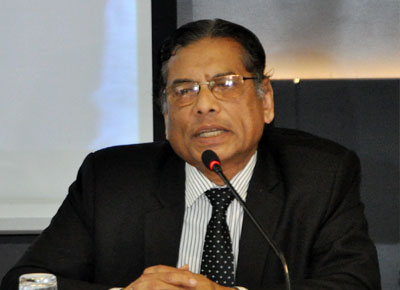 In the opening remarks, H E Ms Monique Van Daalen provided insights on state of the LDCs and contribution made by the LDCs in the global trade scenario. “The value of LDC exports of goods and services increased by 13 per cent in 2018, reaching USD 239 billion. The growth of LDC exports was faster than the growth of world exports, which increased by 10 per cent”, said H E Ms Monique Van Daalen. Although, the LDCs’ share in world exports of goods and services remains insignificant at only 0.95 per cent in 2018. Thus, she suggested that LDCs are required to strengthen their productive capacity in manufacturing and services, diversify export base and further enhance market access.
In the opening remarks, H E Ms Monique Van Daalen provided insights on state of the LDCs and contribution made by the LDCs in the global trade scenario. “The value of LDC exports of goods and services increased by 13 per cent in 2018, reaching USD 239 billion. The growth of LDC exports was faster than the growth of world exports, which increased by 10 per cent”, said H E Ms Monique Van Daalen. Although, the LDCs’ share in world exports of goods and services remains insignificant at only 0.95 per cent in 2018. Thus, she suggested that LDCs are required to strengthen their productive capacity in manufacturing and services, diversify export base and further enhance market access.
Mr Md Munir Chowdhury mentioned that the challenges vary among graduating LDCs. Bangladesh has a population much higher than other graduating LDCs. Thus, country specific interventions are required to tackle such challenges.
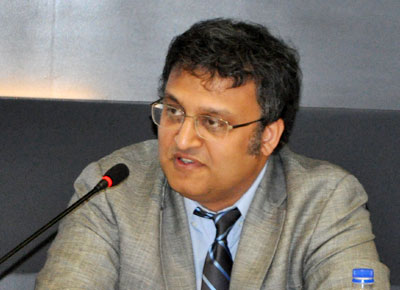 Taking queue from Mr Chowdhury, Dr Rubana Huq observed that the largest manufacturing industry in Bangladesh is the readymade garments (RMG) industry which is heavily engages women. Thus, the WTO should consider to provide special trade related facilities to Bangladesh’s RMG sector after the graduation from the LDCs.
Taking queue from Mr Chowdhury, Dr Rubana Huq observed that the largest manufacturing industry in Bangladesh is the readymade garments (RMG) industry which is heavily engages women. Thus, the WTO should consider to provide special trade related facilities to Bangladesh’s RMG sector after the graduation from the LDCs.
Since, countries will be losing out on many trade related facilities upon graduation, Professor Mustafizur Rahman suggested for a package of supports for the graduating LDCs. He also suggested that Bangladesh should be actively involved in the WTO negotiations on new issues like E-commerce, fisheries and Micro Small & Medium Enterprises (MSMEs).
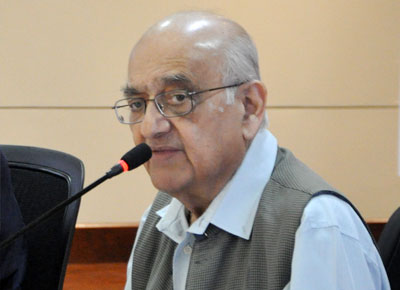
Mr Taufiqur Rahman stated that, “The classical LDC issues have come to a stage where you cannot extract more”. He made this remark while sharing that the LDC group at the WTO hardly works on advancing decisions on trade related facilities like the DFQF.
Professor Rehman Sobhan commented that new and forgone trading opportunities may emerge from ongoing negotiations of the conflicts between United States and China with regards to trade. Thus, new ongoing developments in the world would have ‘decisive impacts’ on countries like Bangladesh.
Relevant government officials, development partners, business leaders and trade experts also participated in the floor discussion.
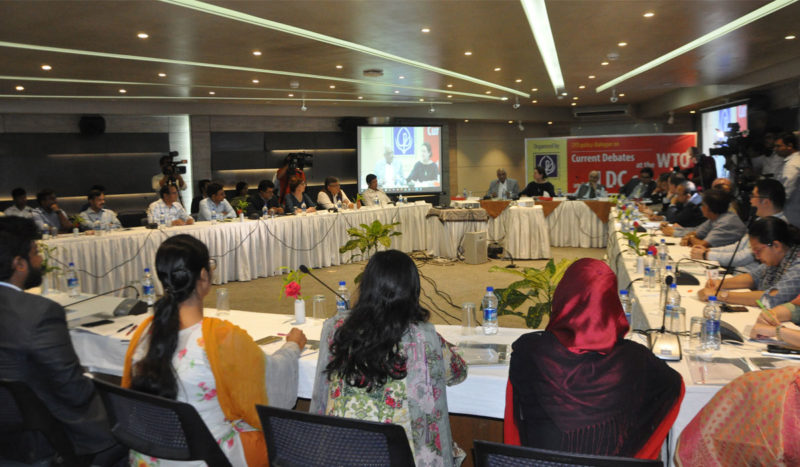
Further readings: Post-MC11 Trade Agenda for the Least Developed Countries


